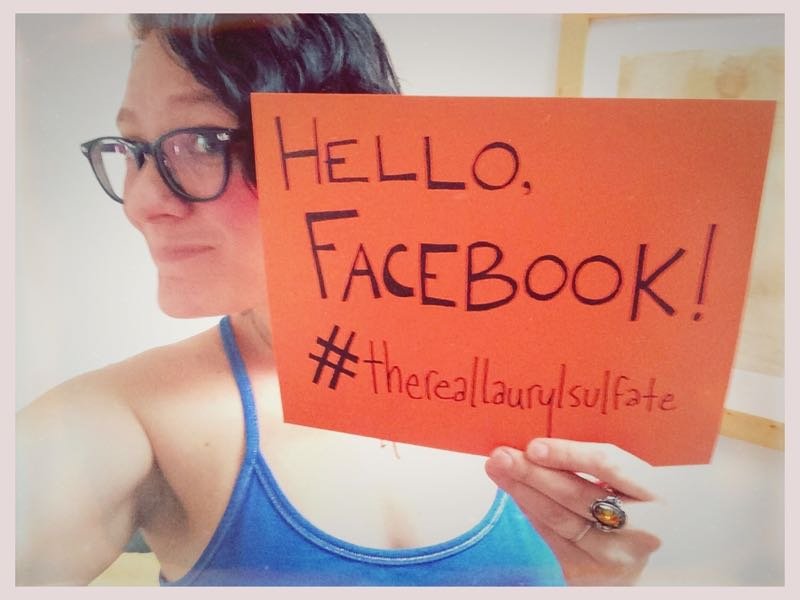Most of us have witnessed activity on the Facebook pages of people who passed away. It's a sad but fascinating phenomenon in social media culture.
"We are social creatures with easy-to-use, increasingly affordable technology at our fingertips. It's only natural that we take our shared activities –
including grieving – online," says Velia Tarnoff, a freelance communications consultant and the wife of OnMilwaukee.com publisher, Andy Tarnoff.
The Facebook page, which prior to death serves as a networking tool and log of one's life, often later becomes a celebration of that life. People go to the deceased person's page to say good-bye, to express love, to connect with other grievers. For a lot of people, this is comforting.
"I think any forum – virtual or otherwise – that lets people express love and grief in a respectful way is an incredibly healthy thing. Having even a virtual reminder of a deceased loved one can provide much needed closure," says Tarnoff.
When Allison Johnson's sister-in-law passed away at the end of last year, she says Facebook was the primary tool used for communicating with friends and family to spread the word, accept condolences and memorialize her with dozens of photos.
"It was like a cyber funeral for days on her Facebook page," says Johnson. "And people still go the page and post comments on her birthday or just 'thinking of you today' type messages. It feels good."
Some people, however, have been frustrated by Facebook's strict policy about removing a dead person's page. Although it is understandable that some grievers just want the page gone immediately, obviously Facebook has to have some proof that the request is real.
The easiest way to delete the Facebook page of a person who has passed away is if a third party knows the deceased's email address and password, in which case they can delete it immediately. But if no one knows the Facebook password, a family member must involve the powers that be at Facebook, and they require a completed online form and proof of relationship via a birth or death certificate.
To have the site memorialized, which means it remains on Facebook but will not show up in other places on the site like the "People You May Know" section, a similar online form must be completed along with an attached obituary or news article announcing the death.
Privacy setting can also be changed so the page is available only to already-confirmed friends and can't be found in a search.
If this is too much for family members, or if a person does not want family or friends to handle their social media accounts upon their death, other measures can be taken.
"There are dozens and dozens of services that will help you arrange to manage your online presence and digital assets posthumously," says Tarnoff.
For example, LifeEnsured.com will handle all online accounts after death. They will modify the accounts – or delete them entirely.
"It's basically a virtual safety deposit box. You can store your username and passwords to your social media accounts and designate a beneficiary who gets the information after you die," says Tarnoff.
Johnson says she and her family, for now, prefer keeping the account exactly the way it was when her sister-in-law was still alive. She says they are doing the same thing with her closet, and her belongings in the bathroom. In time, they might decide to make changes, but for now, keeping everything intact, including her Facebook page, feels the most comfortable.
"It might sound weird, but it actually feels like we are connected in a real-life kind of way," says Johnson.
Facebook also has a section on what to do if someone posts suicidal status updates. First and foremost, they suggest contacting authorities, but they also link to suicidal prevention organizations. Facebook also provides tips to identify suicidal comments and what to say in response.
These days, users of social media have basically two lives to manage and should at least consider preparing for their death in the cyber world as well as the real world.
"As our virtual lives become increasingly entwined into our real lives, it just makes sense that our digital and online identities represent us to the people who know and love us," says Tarnoff. "When was the last time you got a love note on paper? It's probably been a while. Now think of when you got a flirty text or even 'fought' with your partner via text? Probably within the past few days or weeks."
Molly Snyder started writing and publishing her work at the age 10, when her community newspaper printed her poem, "The Unicorn.” Since then, she's expanded beyond the subject of mythical creatures and written in many different mediums but, nearest and dearest to her heart, thousands of articles for OnMilwaukee.
Molly is a regular contributor to FOX6 News and numerous radio stations as well as the co-host of "Dandelions: A Podcast For Women.” She's received five Milwaukee Press Club Awards, served as the Pfister Narrator and is the Wisconsin State Fair’s Celebrity Cream Puff Eating Champion of 2019.







